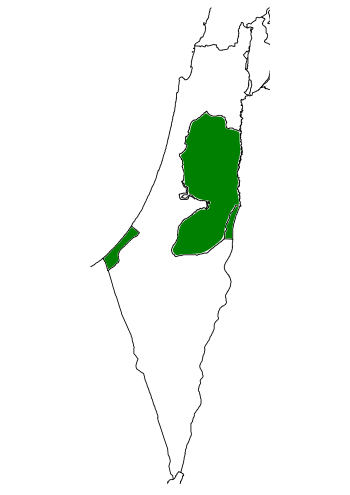 |
| English: Palestinian territories (West Bank and Gaza Strip) showing Israel's 1948 and 1967 borders (Photo credit: Wikipedia) |
 |
| English: The postage stamp of United Nations, Inalienable Rights of the Palestinian People (1981): ( Photo credit: Wikipedia) |
 |
| Jeff Halper (Photo credit: Wikipedia) |
In Montreal we have had a visit from Jeff Halper, head of
the Israeli Committee Against House
Demolitions, who gave two remarkable lectures on succeeding nights. He said on
the second night that he did not speak the language of hope, but of struggle,
and the material he produced for a Montreal audience --- probably 80 per cent
made up of “the choir” of those who agreed with him, as he said ---- did not
make any concessions to those who might be looking for a quick fix to the
Israeli-Palestine imbroglio.
Although I acknowledge the
courage, persistence and goodwill of
those in Israel who oppose the present suicidal course of their government,
nevertheless I had a feeling in the back of my mind that Halper might be
expected to produce a slightly anodyne version of the facts. I should have known better. He gave it to us,
straight, in a manner that the media which is constantly dealing with this
issue never does.
For Halper, the two-state
solution around which all international attitudes towards the issue are built,
is long-since dead and buried. In fact, it has never been a possibility for the
simple reason that, from the outset, Israel has refused to acknowledge it as a
possibility and has done everything it could to pre-empt and kill it.
Ironically, Halper sees the two-state solution as “super pro-Israeli”, because
it envisaged that Israel, with a minority of the population of the whole area
of Palestine, should get 78 per cent of the land. Nevertheless, Israel has
never, from the beginning, accepted or recognized the Palestinians as a people
--- even the Palestinians who are Israeli citizens are referred to as “Arabs”,
to indicate that they have no original homeland they might hanker after. Even the Oslo accords could look forward to
the Palestinians having effective control over only 38 per cent of that 22 per
cent of the land allocated to them after 1948. And the current state of that
eight per cent of the land on which Palestinians now live is that it has been
hopelessly fragmented and controlled by 600 Israeli checkpoints that restrict
the movement of the people who live there to such an extent that he cited the
case of a 21-year-old born in Bethlehem, within walking distance of Jerusalem,
who had never in his life been to Jerusalem, a young man who could see the
Mediterranean but had never visited it.
Halper gave a figure that tells the other part of this story, the
success of Israel in getting rid of the Palestinians over the decades: in 1962,
250,000 Palestinians were living in the Jordan valley, part of the so-called West
Bank; now there are only 50,000 left.
Halper argued that the language
used about the issue is out of date. In
fact, there already exists one state, controlled by Israel from the sea to the
Jordan river. There is one government,
he said, one state, one system of water, one electrical system, one hydro
system, and so on. “We should not be
talking about Occupation of the West Bank,” he said. “What it is today is one
state, an apartheid state, with the two major elements, that one people is set
up over the other, and that they have established a regime of permanent
institutional domination.” Accepting
that this is so, he says, “we now have to make it into a democratic state.” He acknowledges that is not going to be easy.
After all, 95 per cent of Israelis favoured the brutal onslaught lasr year on
Gaza. When this is the mind-set of the dominant people, it is going to take a
cataclysm to change their minds.
Halper believes that the collapse
of the apartheid state must happen eventually, and he is concerned that “we, on
the left” have nothing to suggest to replace it. He bases his ideas about a
possible solution on a proposal for a binational state, established by a
regional Middle Eastern agreement, followed by a confederal government that
would be carefully established through six stages, each of which must be
accepted by both sides if the whole thing is to work. First, a balance must be
struck between collective rights (self-determination) and individual rights
(democracy). This would be a tough one for the Palestinians to swallow, he acknowledges,
because it suggests some limit on sovereignty. Second, the agreement must
conform to human rights and international law. Third, the right of return of
the refugees must be recognized (a tough one for the Israelis to swallow).
Fourth the state must be economically viable. Fifth, it must address the
security concerns of Palestine, Israel and the whole region. Sixth, ultimately
this agreement must be regional in scope, and he defined the region as
comprising at least Israel, Palestine, Lebanon, Syria and Jordan. He suggested
such a state should have two houses of Parliament, one elected on communal
lines, the other by direct election of the people, and there should be a
revolving three member executive head of state, comprising Palestinians,
Israelis and the electorate in general.
He produced a cunning alternative
understanding of BDS (Boycott, Divest and Sanction, the global anti-Israel
campaign that he supports) but which could also stand, he said, for Binational Democratic State.
This was the second of his two
lectures: the first, dealing with Israel’s immense role in “Global
Pacification”, was altogether more alarming. Halper is in the process of
writing a book about the Israeli military, a subject he says he is not expert
in, but which evidently fills his head at this time. He presented Israel as an
almost totally militarized state, whose universities operate as high-tech research
and resource centres for military aggrandizement, but one of its major functions
is to “export the Occupation.” Israel is
armed veritably to the teeth, he says.
It has 10 of its own spy satellites, which explains the high level of
its intelligence about Palestinian movements, and it has invented all sorts of
nasty little vehicles and machines to maximize
control over populations. In fact, Israel’s influence over policing
methods used in many other countries --- Halper suggests it is exporting
military equipment to 185 countries --- is so great that he says we should not
refer to “the militarization” of North American police forces, but rather to
their “Israelization.” Just this week
has come over my e-mail a piece detailing how Israel is supplying all sorts of
oppressive weapons to arm the Mexican border with the US, for example.
I did not keep detailed notes of
this address, so I do not want to imply that he said actual words that he might
not have said. However, I did come away with an overall impression that was
extremely alarming. Given Israel’s
behaviour in ruthlessly opposing any rights for Palestinians ever since
foundation of its state, and right through the so-called Peace Process in its
many rebirths, during which it has paid
lip-service to wanting peace while resolutely refusing every attempt to make
peace, and putting this together with its insane level of military
preparedness, which it has shown every disposition to use, it would seem to be
clear that if ever the day should arrive when the Israel’s existence is
threatened, they would be quite ready to bring the whole Middle East down in
flames. And would be, without any doubt, perfectly capable of doing it.
In this perspective, it would
seem that the decision to implant this European-type state in land already
occupied by another people could be seen as possibly the most disastrous single
policy decision ever made by the international community, a mistake second only
to the actions of the United
States and other powerful supporters in thereafter building
up Israel’s military capacity to such a degree.
Against this nightmarish idea,
Halper seems to pose the suggestion that the world should recognize his new
apartheid state for what it is, and get together to ensure that its future
should be more democratic than its present has turned out to be.
He recognises that Israel has
pulled off an amazing stunt, that is, of persuading the world that it is the
victim in a situation in which they are, in fact, the dominant and oppressing
power, a triumph of what he calls the “framing” of the issue.
I will end with this paragraph
from a book written by Halper called Obstacles to Peace: Re-framing the
Israeli-Palestinian Conflict which deals with this vital issue of how the
conflict is framed, and brilliantly suns up what seems like the irreducible
problem posed by this issue:
“How have officials of successive
Israeli governments and their spokespeople succeeded in ‘selling’ their
country’s heavy-handed control over millions of people deprived of their lands
and rights as somehow justifiable? How do they convince not only its own people
but also otherwise liberal people abroad --- political leaders, journalists,
academics and much of the Diaspora Jewish community, not to mention the ‘man on
the street’ --- to support policies which are manifestly unjust, which plainly
violate international law and fundamental human rights and which serve to destabilize
relations between the West and the entire Muslim world? How do they succeed in
casting Palestinian resistance as base ‘terrorism’ while casting Israel, one of
the world’s strongest military powers and one of its longest standing Occupying
Powers, as a mere victim?”





.jpg)